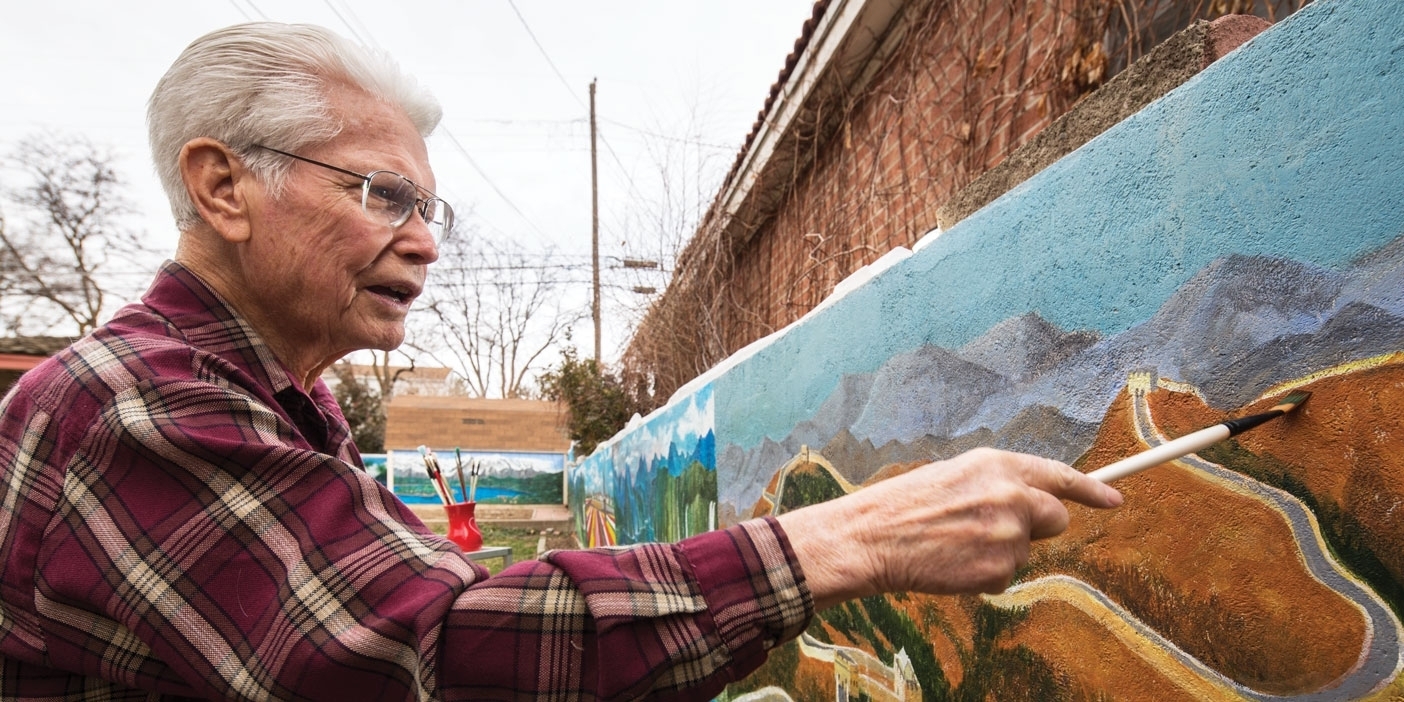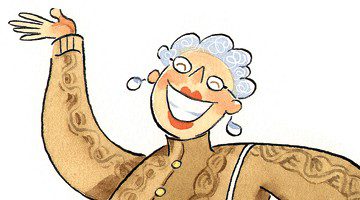By Elyssa Renee Madsen
Ask former Rhodes scholars what they’re up to lately and you’ll most likely hear about their kids. Whether it’s Rebecca Thomas Tingle’s baby girl or Clayton M. Christensen’s son returning home from a mission to play basketball at Duke, families seem to be what many Rhodes scholars consider their most important accomplishment. Not that any lack professional or educational accomplishments either. When Chauncy D. Harris received the Rhodes Scholarship in 1934, he became the first of 10 BYU graduates (including this year’s Ryan Rowberry, who is profiled in A Closer Look) who would use a European education to set a standard of excellence.
Not only was Chauncy D. Harris, ’33 (Edith Young, ’34), BYU’s first Rhodes scholar, he was also valedictorian of his graduating class. After earning a BA in geology at BYU, he earned a second BA in geography from Oxford and a PhD in geography from the University of Chicago. A lifelong educator, Harris has taught at Indiana University, the University of Nebraska, and the University of Chicago, taking time off during World War II to serve in the Offices of the Geographer in the State Department and in the Office of Strategic Services.
During Harris’ tenure at the University of Chicago, he was appointed the Samuel N. Harper Distinguished Service Professor of Geography and served in various administrative positions, including vice president for academic resources. Reflecting on his time at BYU 66 years ago, he recalls, “I got a very good undergraduate education at Brigham Young University, which I much appreciate. I had great teachers.”
For David L. Wilkinson, ’61 (Tricia Thomas), a BA in history marked the beginning of an intense interest in law and government. After receiving a law degree from Oxford and a JD from the University of California at Berkeley, Wilkinson began practicing corporate law. In 1972 he was appointed an assistant to the Utah Attorney General, and he later became Chief Deputy Salt Lake County Attorney and Utah Attorney General. Wilkinson authored legislation that strengthened Utah’s laws against pornography and dissolved more than 40,000 shell corporations. He has taught at BYU’s law school and worked for the Hughes Corporation.
Roger B. Porter, ’69 (Ann Robinson, ’72), says attending BYU greatly influenced his life. “I received an enormous amount of encouragement from faculty and students to pursue a life committed to excellence and service,” he says. After graduating from BYU with a BA in political science and history, Porter received a BPhil in politics from Oxford and an MA and PhD in government from Harvard University.
Porter’s commitment to service has been two-fold– as an educator and as a public servant. Since 1977 he has taught economics and government at Harvard, where he is the IBM Professor of Business and Government and director of Harvard’s Center for Business and Government. He is perhaps best known, however, for the 11 years he served in the White House as a senior economic advisor to Presidents Ford, Reagan, and Bush.
Clayton M. Christensen, ’75 (Christine Quinn, ’74), received a BA in economics at BYU, followed by an MPhil in economics from Oxford and an MBA from Harvard University. After stints with the Boston Consulting Group and with the Reagan administration as a White House fellow, he started a business, Ceramics Process Systems, with several MIT professors.
He always wanted to teach, however, so in 1989 he enrolled at Harvard again. After receiving his DBA, Christensen joined the Harvard Business School faculty, a job he likens to “dying and going to heaven.” His 1997 book Innovator’s Dilemma was given the Global Business Book Award and prompted Forbes magazine to feature him on their January 1999 cover. He attributes much of his success to BYU, saying, “I think my years at BYU probably shaped my future more powerfully than anything else because they helped me order my values.”
Steven G. Nelson, ’76 (Jane Bennion, ’82), used the Rhodes Scholarship to start his medical career. After receiving a BA in chemistry from BYU, he completed half of his medical degree at Oxford, then transferred to the University of Utah to receive an MD. Nelson spent the next six years working on his internship and residency, taking a break to work at BYU’s McDonald Health Center from 1982 to 1983.
After finishing his residency, Nelson earned a JD from Stanford University. He then returned to medicine and joined Desert Samaritan Hospital in Phoenix. In addition to his medical practice, he teaches an obstetrics and gynecology class for the University of Arizona, does legal consulting, and helps his wife raise their four children who are, he says, “the main focus of my efforts.”
According to Gerrit W. Gong, ’77 (Susan Lindsay, ’79), his studies at BYU and Oxford expanded his vision of the world, preparing him for later work in international politics. “One very good educational pattern is the broad education of an undergraduate American degree with the very focused Oxford graduate degree,” he says.
Gong received a BA in Asian studies and university studies from BYU, followed by an MPhil and a DPhil from Oxford. In 1981 he joined the Center for Strategic and International Studies (CSIS) in Washington, D.C.
From 1985 to 1989 Gong worked for the State Department, serving as a special assistant to an undersecretary and fulfilling international assignments to China and Taiwan. He then resumed working with CSIS, where he is the Freeman Chair and director of Asian studies.
Kenneth R. Beesley, ’78, received a BA in university studies at BYU, followed by a one-year graduate degree in linguistics and phonetics from the University of Glasgow, Scotland, and a DPhil in cognitive science from the University of Edinburgh, Scotland. He now works as a computational linguist for Xerox Research Centre Europe in Grenoble, France.
While at BYU Ronald J. Rinaldi, ’85, participated in the Washington Seminar, interning in the office of the administrative assistant to the Chief Justice of the U.S. Supreme Court. The experience fueled his interest in law. After receiving a BA in American studies from BYU and studying at Oxford for three years, Rinaldi earned a JD at Columbia University. He clerked for a year for a federal judge in Washington, D.C., then joined the faculty at the University of Arizona College of Law. From 1996 to 1998 Rinaldi worked as an associate in a New York law firm; he recently returned to Arizona to work for the Phoenix law firm O’Connor Cavanagh.
Rebecca Thomas Tingle, ’92 (Bryce, ’91), had earned a BA in English from the University of Utah and was pursuing a master’s degree in English at BYU when she became the first female BYU student to receive a Rhodes Scholarship. After studying Old English at Oxford for three years, she worked on BYU’s admissions committee. She now lives in Calgary, Alberta, Canada, where she is raising her 10-month-old daughter and writing fiction. Tingle has completed her first young-adult, historical-fiction novel, Æthelflœd, and is working on a second, Ælfwyn. Reflecting on her career as a writer and mother, she says, “My life seems very good right now.”









